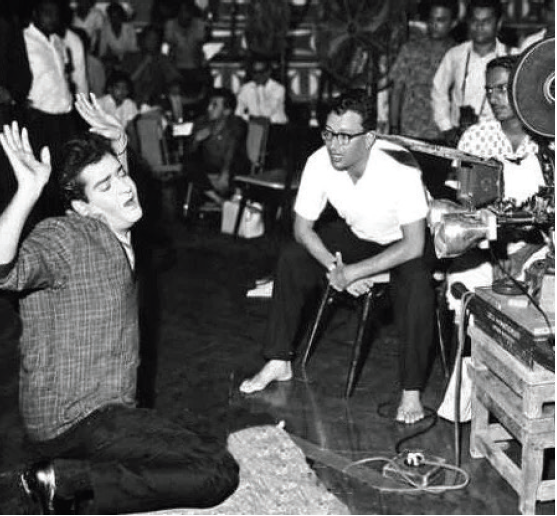Cinema, as a multifaceted art form, wields significant power over individuals within society. It transcends mere entertainment, offering a window into different cultures, social issues, and human experiences. Through compelling storytelling and visual artistry, films have the unique ability to evoke deep emotions, challenge perceptions, and inspire personal growth. The influence of cinema extends beyond the screen, shaping individuals’ thoughts, attitudes, and behaviors. Whether it is through sparking empathy for different life experiences, encouraging reflection on societal norms, or motivating action towards social change, cinema profoundly impacts the lives of individuals, making it a pivotal cultural force in contemporary society.
Charlie Chaplin once remarked, ‘Movies are a fad. Audiences really want to see live actors on a stage,’ highlighting the initial skepticism towards cinema’s potential. However, the influence of films has grown immensely over time. Steven Spielberg emphasised this by saying, ‘Movies can and do have tremendous influence in shaping young lives in the realm of entertainment towards the ideals and objectives of normal adulthood’. While Martin Scorsese succinctly put it, ‘Cinema is a matter of what’s in the frame and what’s out,’ underscoring the importance of storytelling and perspective in film.
Ingmar Bergman delved deeper into the emotional impact of cinema, stating, ‘No art passes our conscience in the way film does, and goes directly to our feelings, deep down into the dark rooms of our souls’.
Quentin Tarantino shared his personal experience, saying, ‘When people ask me if I went to film school, I tell them, ‘No, I went to films,’ illustrating how cinema itself can be a profound teacher. Federico Fellini described cinema’s enduring appeal: ‘Cinema is an old whore, like circus and variety, who knows how to give many kinds of pleasure’.
These insights from legendary filmmakers highlight the profound and varied impacts of cinema on society, from shaping cultural norms and personal ideals to evoking deep emotional responses and inspiring reflection.
Cinema has a profound influence on society in numerous ways. Firstly, its cultural impact is undeniable. Films reflect and shape cultural norms, values, and traditions, often serving as a mirror to society. They can introduce audiences to new cultures, ideas, and perspectives, fostering a sense of global understanding and empathy. For instance, Hollywood’s global reach has popularised Western culture, while films from other regions like Bollywood, Nollywood, and Korean cinema are increasingly shaping global cultural trends .One notable example of a film with significant social and cultural impact on society is ‘To Kill a Mockingbird’ (1962), directed by Robert Mulligan.Socially, the film addresses racial injustice and moral growth, depicting a lawyer, Atticus Finch, who defends a black man falsely accused of raping a white woman in the segregated American South. It challenged prevailing racial attitudes during the Civil Rights Movement, prompting important discussions on racism and justice. Culturally, the film ‘To Kill a Mockingbird’ has become an essential part of American culture and education, frequently included in school curricula. The character of Atticus Finch symbolises integrity and moral courage, and the film’s themes of empathy and understanding continue to resonate. Its enduring popularity and numerous awards highlight its lasting influence.
Politically, cinema serves as a platform for commentary on political issues, sparking debates and activism. Political films can expose corruption, critique governance, and inspire revolutionary thoughts. They can influence public opinion and even policy. For example, ‘The Battle of Algiers’ (1966) is renowned for its depiction of the Algerian struggle for independence from French colonial rule, providing a powerful narrative that influenced political discourse worldwide.
Economically, cinema is a significant contributor to economies through employment, tourism, and related industries. The film industry generates substantial revenue, creates jobs, and boosts ancillary sectors like tourism. Iconic film locations often become tourist attractions, contributing to local economies. The success of the ‘Lord of the Rings’ trilogy, filmed in New Zealand, significantly boosted the country’s tourism industry, exemplifying the economic impact of cinema.
Giving reference to some of the ‘Cinema’s Revolution’ we have in knowledge bank the Iranian cinema that has been a significant force in global cinema, addressing societal issues under political constraints. Despite censorship and restrictions, Iranian filmmakers have produced thought-provoking films that delve into social and ethical issues within Iranian society. A notable example is ‘A Separation’ (2011) directed by Asghar Farhadi. This film highlighted complex social issues and family dynamics under Iranian societal norms, earning critical acclaim globally. It portrays the moral and ethical dilemmas faced by ordinary people, offering a window into the socio-political landscape of Iran.
Secondly, Latin American cinema often confronts political oppression, poverty, and identity crises. These films provide a raw and authentic portrayal of life in Latin American countries, often addressing issues that mainstream media overlook. ‘City of God’ (2002) directed by Fernando Meirelles is a prime example. This film raised awareness about poverty and violence in Brazilian favelas, bringing international attention to the harsh realities faced by many in Brazil. It combined a gripping narrative with a documentary style, making a profound impact on audiences and critics alike.
While talking about cinema, how can one forget Indian cinema (Bollywood). Bollywood films are known for their cultural influence, melodrama, and song-and-dance sequences. They play a significant role in shaping cultural norms and values in India and among the Indian diaspora. ‘Lagaan’ (2001) directed by Ashutosh Gowariker is an exemplary Bollywood film that promoted unity and nationalism through a narrative set during India’s colonial period. The film’s story of a group of villagers challenging British colonial rulers through a cricket match resonated deeply with audiences, symbolising resistance and the fight for independence.
Cinema, therefore, remains a powerful force for cultural expression, social change, and political discourse, uniting diverse stories and voices across borders. As technology advances, its influence will continue to grow, shaping and reflecting our ever-evolving world.
The writer is our Editorial Assistant and journalist based in Peshawar.



